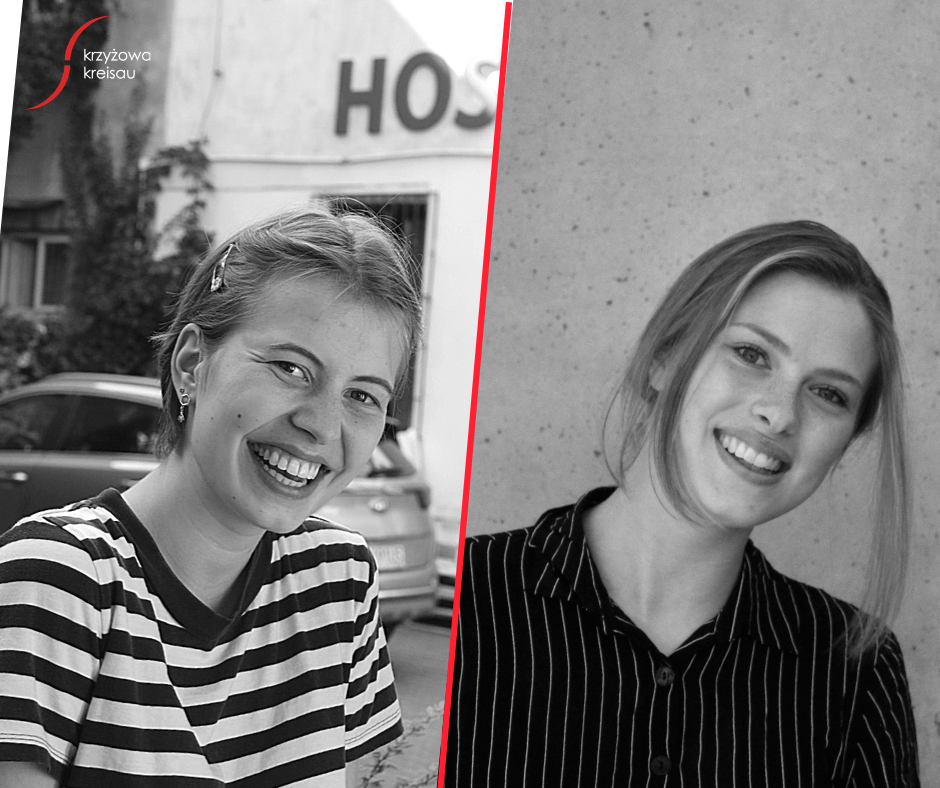
7. The Intergenerational Open Cross-Country Reconciliation Runs under the slogan "Family without Violence" took place at the Krzyżowa Foundation on October 3, 2020. It was also the Open Lower-Silesian Cross-Country Final.
Competitors from the entire Lower Silesian Voivodeship, aged from several to several dozen years, covered distances from 100 to 2000 meters.
The aim of the event was to celebrate the Polish-German reconciliation, and this year also the 100th anniversary of the Battle of Warsaw. The idea of the Reconciliation Runs is also to support inter-generational solidarity, stimulate physical activity of families, elderly people, people inactive in terms of sports, social and professional activity, and to promote sports volunteering.
Event organizers: Powiatowe Zrzeszenie Ludowych Zespołów Sportowych w Świdnicy, Świdnicka Grupa Biegowa, OSP Grodziszcze, Krzyżowa Foundation for Mutual Understanding in Europe.
Read more: 7. The Intergenerational Open Cross-Country Reconciliation Runs - 3.10.2020

In September, traditionally, we welcome new volunteers to Krzyżowa.Two new fantastic friends - Emma and Anna-Sofia - have been with us for several days.
Where they came from, why they came to Krzyżowa and what are their first impressions - you can read about this in short self-presentations.
We are very happy that Emma and Anna-Sofia are already with us and we wish them that the time they will spend in Krzyżowa will be creative, interesting and full of good emotions!
Read more: Welcome new volunteers to Krzyżowa!

We follow the developments in Belarus with great attention. We express our solidarity with all Belarusians who are standing up for dignity, freedom and democracy. Their courage and determination inspire our admiration and respect. We are filled with sadness and indignation by the fate of the repressed people. We hope that the European Union, the authorities of democratic states and international public opinion will effectively put pressure on the Belarusian authorities so that they cease violence and enter into dialogue with the society.
The Krzyżowa Foundation for Mutual Understanding in Europe was born in 1989 as a work of courageous people, citizens fighting for freedom, Polish-German reconciliation and overcoming the division of Europe. It is with all the more hope that we observe the uprising for freedom in Belarus and its civic, pro-European character. We believe that it will bring full freedom and democracy to Belarus and will be the beginning of the process of integration of this country with the European Union.
Soon we will celebrate the 40th anniversary of signing the August Agreements, this great victory of courage, solidarity and dialogue over conformism, fear and the logic of confrontation. Let this legacy of Polish Solidarity be a proof of the power of the voice of the citizens for Belarusians.
We are with you!
The Management Board of the Krzyżowa Foundation for Mutual Understanding in Europe.
Read more: Statement of the Foundation's Management Board on the events in Belarus

 Due to security measures in the Corona pandemic year 2020, there is no free ticket sale. Admission to concerts is only possible by pre-registering per email. The following details are mandatory: surname, first name, telephone number (if possible mobile number) as well as the postal address. You will then receive an email confirmation from us, which you must present as an entry permit. This email also contains all instructions on Covid-19 precautions and conduct before, during and after the concert. Special regulations apply to visitors who have a current, negative Covid-19 test.
Due to security measures in the Corona pandemic year 2020, there is no free ticket sale. Admission to concerts is only possible by pre-registering per email. The following details are mandatory: surname, first name, telephone number (if possible mobile number) as well as the postal address. You will then receive an email confirmation from us, which you must present as an entry permit. This email also contains all instructions on Covid-19 precautions and conduct before, during and after the concert. Special regulations apply to visitors who have a current, negative Covid-19 test.
This year the admission for all concerts is free. Donations are requested.
Ticket reservation (in English and German):
Instead of tickets, please send concert registration in German and English to Matthias von Hülsen, to his email address:
This email address is being protected from spambots. You need JavaScript enabled to view it.
Ticket reservation (in Polish):
Instead of tickets, please send concert registration in Polish to Paulina Schmid: This email address is being protected from spambots. You need JavaScript enabled to view it.
Entrance is only possible upon presentation of the email confirmation!
Read more: Krzyżowa-Music 2020. Summer Concerts and Symposia






 Due to security measures in the Corona pandemic year 2020, there is no free ticket sale. Admission to concerts is only possible by pre-registering per email. The following details are mandatory: surname, first name, telephone number (if possible mobile number) as well as the postal address. You will then receive an email confirmation from us, which you must present as an entry permit. This email also contains all instructions on Covid-19 precautions and conduct before, during and after the concert. Special regulations apply to visitors who have a current, negative Covid-19 test.
Due to security measures in the Corona pandemic year 2020, there is no free ticket sale. Admission to concerts is only possible by pre-registering per email. The following details are mandatory: surname, first name, telephone number (if possible mobile number) as well as the postal address. You will then receive an email confirmation from us, which you must present as an entry permit. This email also contains all instructions on Covid-19 precautions and conduct before, during and after the concert. Special regulations apply to visitors who have a current, negative Covid-19 test.
